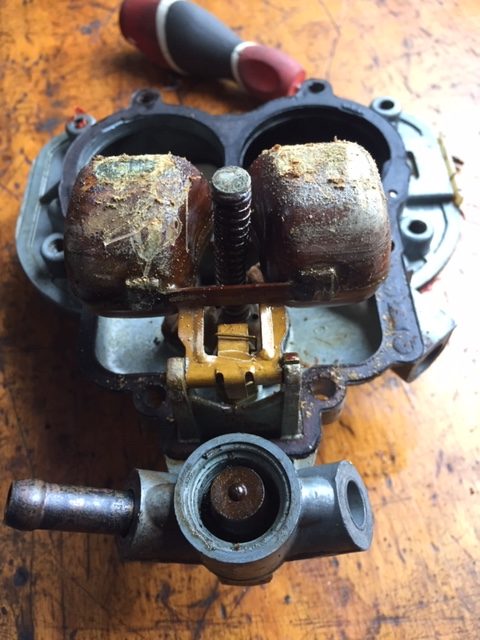Modern fuels contain more and more ethanol. This is a big concern for classic car owners, as these fuels are not suitable for older fuel systems. In our workshop, we get to work on many cars with fuel related problems. Most of these can be tracked down to old petrol, especially in relation to a high ethanol content.

Pictured above is the top part of a Weber carburettor from an MGB. The car was parked for several years, causing severe contamination in the fuel tank and carburettor. This eventually led to clogged up needles and a leaking brass float. Luckily, replacement parts are easily available and relatively affordable. It just takes an awful lot of time to get everything working like it should…
After several months, ethanol starts to attract moisture. This will eventually lead to corrosion in your fuel tank and pipes. Old fuel evaporates into a gooey substance, clogging carburettors and injectors. The ethanol is also aggressive to certain materials used in classic car fuel systems, such as rubber, cork, copper and brass.
How to prevent these problems? Here are some tips:
- Use petrol with the highest available octane grade (preferably 98 or higher, if available). These fuels contain less ethanol.
- Use your classic car regularly, at least enough to refuel every 6 months.
- Pay attention to your fuel hoses. Are they ethanol resistant? If in doubt, replace them with high quality modern rubber.
- Replace your fuel filter regularly.
- When storing your car long term, fill it up with high grade fuel. Try to let it run every other month and store it in low-humidity conditions.
Want to dive deeper into this subject? Read our previous posts on classic car fuel and storage tips.

